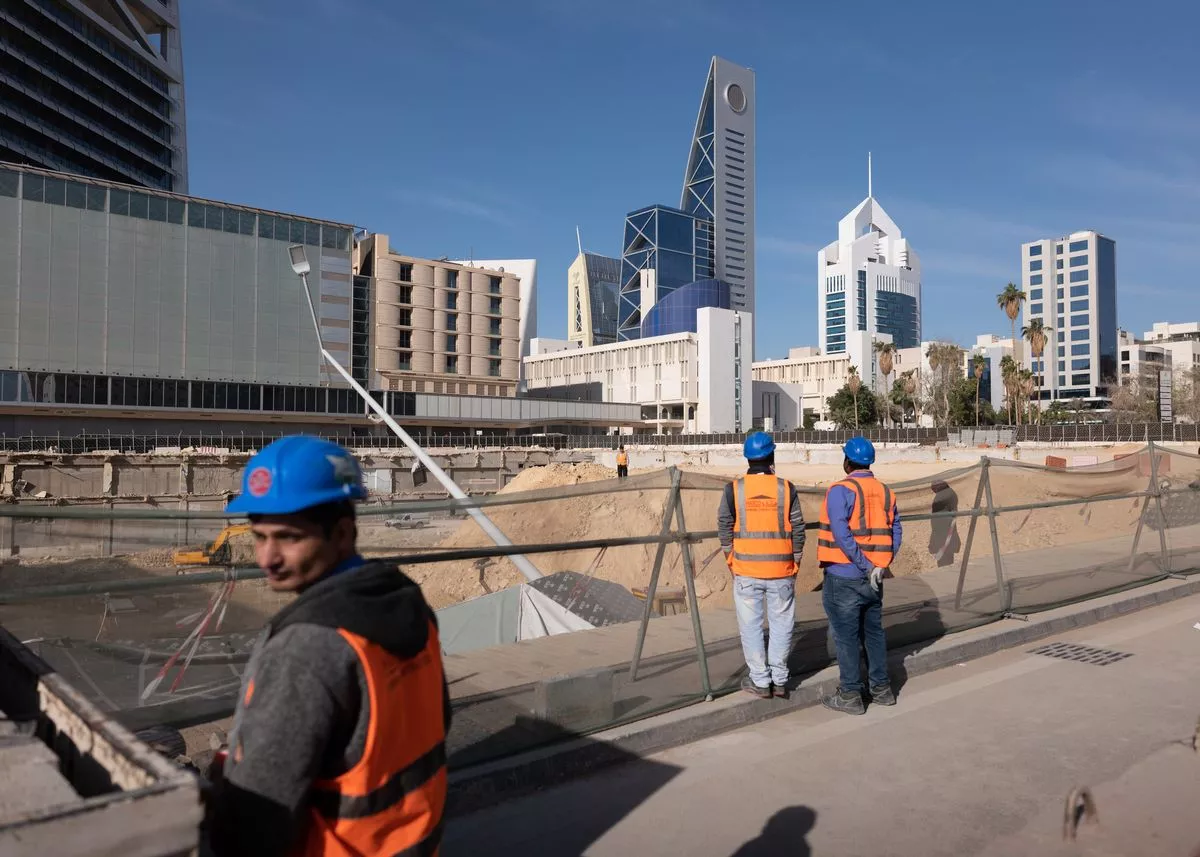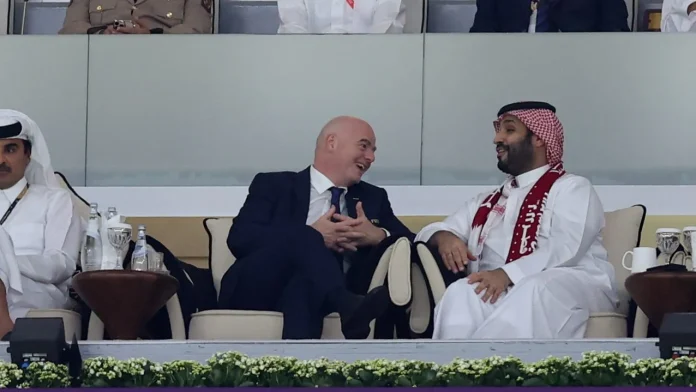Saudi Arabia has officially been awarded hosting rights for the 2034 FIFA World Cup, marking a significant milestone in the Kingdom’s ongoing push to establish itself as a global sports hub. However, the decision has sparked widespread criticism due to Saudi Arabia’s human rights record, accusations of sportswashing, and environmental concerns. The announcement, expected during FIFA’s virtual congress, will finalize a five-year campaign led by FIFA President Gianni Infantino and Saudi Crown Prince Mohammed bin Salman.
A Pre-Determined Outcome
The decision to award Saudi Arabia the 2034 World Cup comes as no surprise, given the lack of competition for hosting rights. Following the announcement of the 2030 World Cup being split among Spain, Portugal, Morocco, and three South American countries (Uruguay, Argentina, and Paraguay), FIFA limited bidding for the 2034 tournament to the Asian Football Confederation (AFC) and the Oceania Football Confederation (OFC). Australia briefly considered a bid but withdrew, citing insufficient time and resources to mount a credible campaign.
Infantino and the AFC quickly endorsed Saudi Arabia, ensuring no viable opposition emerged. Delegates from FIFA’s 211 member associations will merely acknowledge the decision during the congress, bypassing a formal vote.
Human Rights Concerns
Saudi Arabia’s human rights record has been a major point of contention in the lead-up to the 2034 World Cup announcement. Human rights organizations, including Amnesty International and Human Rights Watch, have criticized FIFA for ignoring the risks posed to migrant workers, women, and LGBTQ+ individuals. Amnesty’s High Stakes Bids report warned of potential human rights abuses tied to World Cup preparations, highlighting the Kingdom’s use of 10 million migrant workers in construction and domestic sectors.
“FIFA knows that workers are likely to die if they hand the World Cup to Saudi Arabia without putting proper protections in place,” said Stephen Cockburn of Amnesty International. The organization estimates that thousands of Nepali, Bangladeshi, and Indian workers have died since Saudi Arabia launched its Vision 2030 program, aimed at diversifying the economy and expanding infrastructure.
Migrant Worker Exploitation
Migrant workers form the backbone of Saudi Arabia’s construction and service industries, including projects tied to the World Cup. While the Saudi government claims to have implemented robust labor regulations, reports of unsafe working conditions, unpaid wages, and exploitative practices persist. According to Human Rights Watch, the Kafala sponsorship system, which binds migrant workers to their employers, remains a significant barrier to labor rights.

Despite FIFA’s evaluation report awarding Saudi Arabia a record score of 419.8/500, critics have dismissed the findings as biased. The report’s author is allegedly tied to Saudi government ministries and the Public Investment Fund, raising concerns about the objectivity of FIFA’s assessment.
LGBTQ+ Rights Under Scrutiny
The LGBTQ+ community has also expressed serious concerns about Saudi Arabia hosting the World Cup. Same-sex relationships are illegal in the Kingdom and are punishable by death, imprisonment, and deportation. Australian footballer Josh Cavallo, the first openly gay top-flight player, voiced his apprehension, stating that he “wouldn’t feel safe” playing in a Saudi-hosted tournament.
Lise Klaveness, President of the Norwegian Football Federation (NFF), criticized FIFA’s bidding process, stating, “FIFA’s guidelines for human rights and due diligence have not been adequately integrated, increasing the risk of human rights violations.”
Environmental and Sustainability Concerns
Saudi Arabia’s heavy reliance on fossil fuels adds another layer of controversy to its World Cup bid. The Kingdom’s state-owned oil giant, Aramco, is the world’s largest corporate emitter of greenhouse gases and a major FIFA sponsor. While Saudi Arabia has pledged to diversify its economy through investments in tourism and renewable energy, critics argue that its sports initiatives, including hosting the World Cup, are attempts to distract from its environmental impact.
FIFA’s evaluation report categorized Saudi Arabia as “low risk” in terms of sustainability and environmental protection, a classification that has drawn backlash from environmental groups. The upcoming tournament also raises questions about the ecological footprint of constructing new stadiums and infrastructure in a country with extreme weather conditions.
Accusations of Sportswashing
The term “sportswashing” has become synonymous with Saudi Arabia’s efforts to use high-profile events to improve its global image. From acquiring Newcastle United in the English Premier League to hosting boxing mega-fights, the LIV Golf series, and Formula One races, Saudi Arabia has made significant inroads into global sports.
Gianni Infantino’s close relationship with Crown Prince Mohammed bin Salman has amplified these concerns. Critics argue that FIFA’s decision to grant Saudi Arabia the World Cup enables the Kingdom to whitewash its human rights abuses, including the assassination of journalist Jamal Khashoggi, widely attributed to agents of the Saudi government.
Global Backlash
The decision to award Saudi Arabia the 2034 World Cup has drawn criticism from human rights groups, environmental organizations, and football stakeholders. Norway’s Football Federation has been particularly vocal, condemning FIFA’s lack of transparency and fairness in the bidding process.
“The NFF cannot endorse a process it considers flawed and inconsistent with FIFA’s own reforms,” said the organization in a statement. Norway plans to formally object during FIFA’s congress, although their dissent is unlikely to alter the outcome.
Implications for Global Football
Saudi Arabia’s hosting of the 2034 World Cup signals a shift in FIFA’s priorities, with financial incentives seemingly taking precedence over human rights and sustainability. The tournament is expected to inject billions into the Saudi economy and further solidify its position as a global sports powerhouse. However, the decision also raises questions about FIFA’s commitment to upholding its own values and principles, as outlined in its human rights policies.
As FIFA and Saudi Arabia prepare for the 2034 World Cup, the controversies surrounding the decision will continue to shape the narrative, potentially overshadowing the tournament itself.
READ NEXT:


